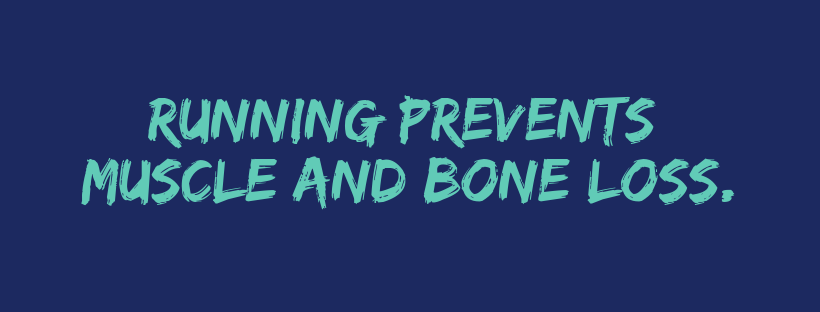We’ve heard it a thousand times, so we all know that exercise is good for us. Running, for example, keeps us nimble, burns calories and helps us feel good. But what kind of hard scientific data backs this up? How exactly does running benefit our physical and psychological well-being? Scientists and regular runners have been pondering this forever, and here’s what we’ve come up with:

A 2013 study by Paul Williams, PhD, showed that walking and running both led to a reduction in the risk for high blood pressure, diabetes, high cholesterol and possibly coronary heart disease. A total of 33,060 runners and 15,045 walkers were studied over a 6-year period.
Other studies have pointed to the fact that longer distance runners have slow at-rest pulse rates, and their bodies take in more oxygen to fuel their activities, findings proven by echocardiograms. It’s generally believed that while runners aren’t exempt from hereditary heart disease, their hearts are more efficient than those who are sedentary. More efficient equals healthier.

We’re all going to die, but what if running could help you live longer? A 2014 study published in the Journal of the American College of Cardiology showed that runners have a 30 percent lower risk of death from all causes and a 45 percent lower risk of death from heart disease or stroke. What’s more, the study says if you run consistently for 6 years or more, you have a 50 percent lower risk of dying from heart disease or a stroke. I don’t know about you, but I’m impressed by those numbers.

Many people’s firsthand experience bears out in scientific studies when it comes to exercise and its positive psychological effects. The Wall Street Journal recently cited a study published in the journal Lancet Psychiatry that reconfirmed the notion that all exercise improves our mental health, and some forms of exercise are more effective at lifting our spirits than others. In this particular study, running came up at number 4, after team sports, cycling and aerobic/gym exercise.
Scott Douglas, author of Running Is My Therapy, says that running has been an important part of treating his depression. He talked to numerous others who have seen their mental health issues–primarily anxiety and depression–decrease with running. Other studies have shown that exercise and antidepressants work better than antidepressants alone at alleviating depression. Exercising between 30 and 60 minutes had the best effects when done three to five times a week.

Ever have a super stressful day at work and then go for a run? I have, and I always feel better afterwards. Running helps me burn off excess energy and lets me mentally process the day’s events in a healthy way.

If weight loss is part of the reason you’ve started running, you can shed pounds as long as you keep your daily intake of calories in check. However, it’s important not to restrict your calories too much, because your body needs fuel to log the miles. Finding the perfect balance for you is an individual endeavor.

Running is a weight-bearing exercise, and like all such exercise, it helps maintain bone health and prevent bone loss into older age. In this article, “Best Exercises to Prevent Osteoporosis,” running comes in right at the top for preserving bones, along with gymnastics, aerobics, dance, weightlifting, football, basketball, soccer, and tennis.

The same way it reduces stress, running can also help you sleep better, as long as you don’t log 15 miles too close to bedtime (that might just rev you up instead of calming you down). Running is known to help regulate hormones and body temperature, as well, and a more regulated body temperature and more regular sleep-wake cycle will improve mood during the day. Not coincidentally, better sleep can help improve running performance.

While it’s often fine–and sometimes even preferable–to get a solo run in, there’s something to be said about the power of running with friends. The common interest, the shared goals, the universal poop stories…all these things add up to a good time made even better with companionship. Interested in joining a running club? Check out our article on running groups across the country.
With so many benefits, why not make today the first day of your running career? Enjoy!










